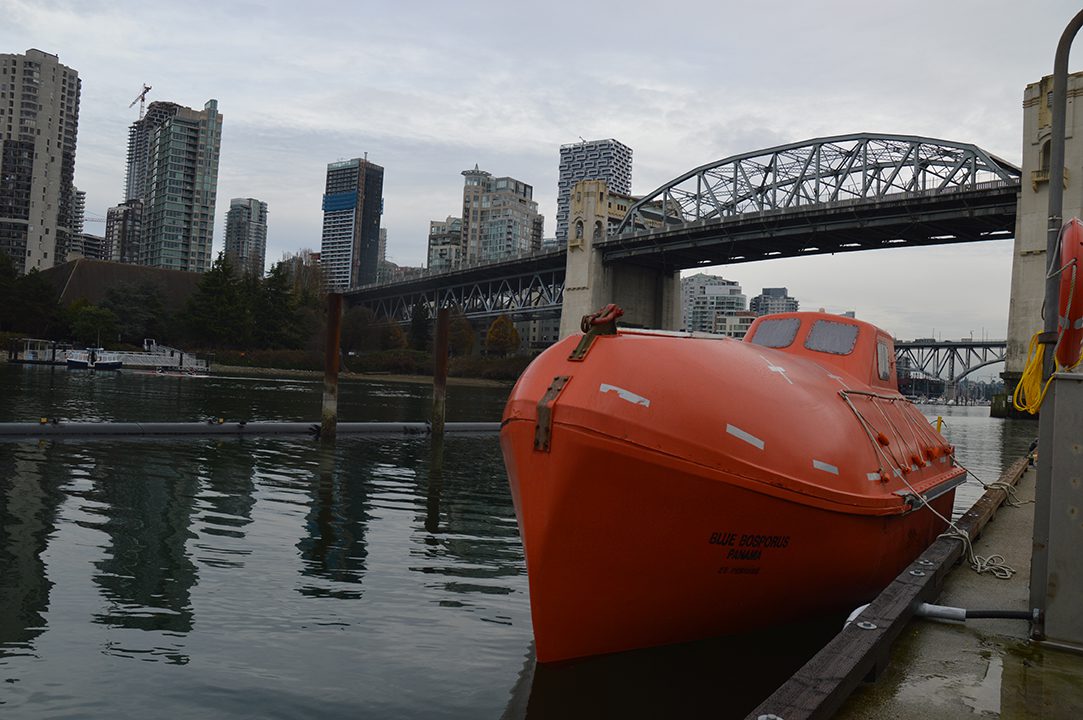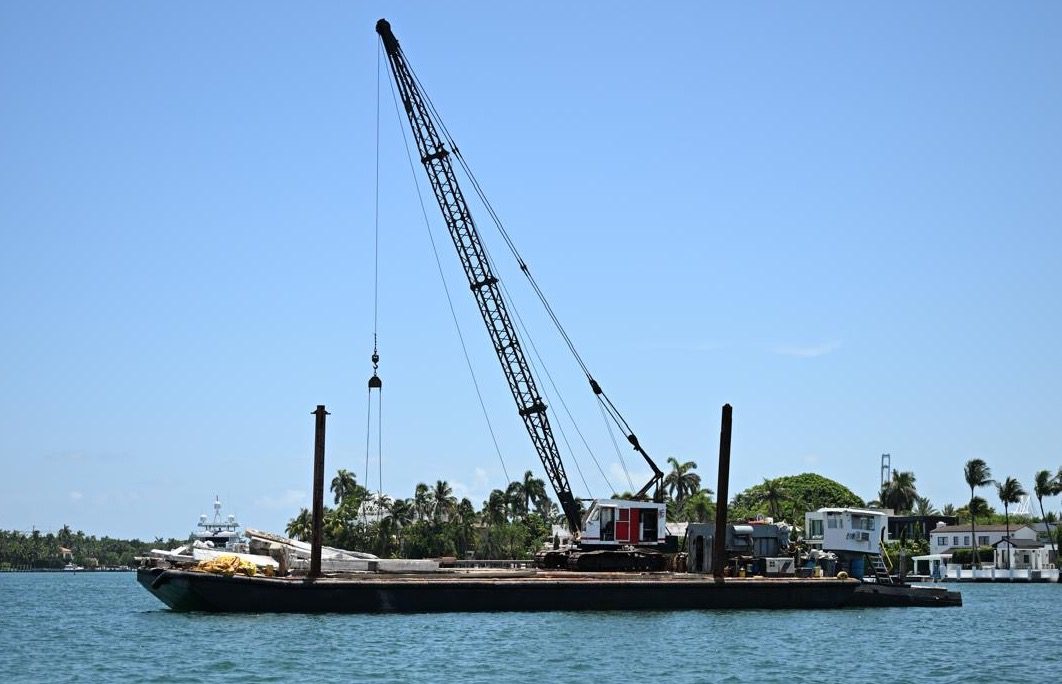Weakened hardware and an improperly secured lifeboat sling caused the accidental release of a bulk carrier’s free-fall lifeboat during a drill that left two crew members seriously injured in English Bay, British Columbia in 2020.
In an investigation report published Tuesday by the the Transportation Safety Board of Canada (TSB), the agency details its investigation into the December 1, 2020 accident aboard the bulk carrier Blue Bosporus.
While carrying out a free-fall lifeboat drill at an anchorage in English Bay, the slings holding the lifeboat failed, causing the lifeboat to fall approximately 14 meters to the water below. Two crew members inside the lifeboat, both of whom were unsecured at the time, were seriously injured and taken to the hospital. The forward starboard side of the lifeboat’s hull sustained damage.
The investigation found that the crimp sleeves, which are used to secure the eyes on the lifeboat slings, had weakened over time.
“The manner in which the slings were attached to the hooks on the lifeboat davit caused the load to concentrate on the right rear sling. This, in combination with the weakened crimp sleeves, caused the failure of the slings and a bracket on the lifeboat. Without a complete procedure for conducting a drill that involved launching the lifeboat using the davit, the crew had developed an informal practice that did not address the risk of standing unsecured in the lifeboat, which led to the serious injury of 2 crew members when the lifeboat fell,” the TSB said.
Although the ship owner, Apollonia Lines S.A., had regular maintenance routines in place to verify the condition of the lifeboat and its launching appliances, they did not prompt the crew to specifically check the condition of the slings.
“While there are international requirements for inspections of lifeboat lifting appliances and associated components, they do not clearly address slings associated with free-fall lifeboats. In the absence of any international guidance requiring free-fall lifeboat slings to be verified periodically, inspected before use and marked with a safe working load, there is a risk that this critical equipment will be overlooked during inspections or its safe limits will be exceeded, leading to an accident,” the TSB said.
Following the incident, Apollonia Lines replaced the failed and damaged equipment aboard the Blue Bosporus, including adding a newly manufactured, load tested and certified sling assembly and brackets. The company also issued a safety management system circular to all its vessels regarding requirements for inspections of lifeboats and associated equipment and for lifeboat drills.
The final report can be found here.

 Join The Club
Join The Club









